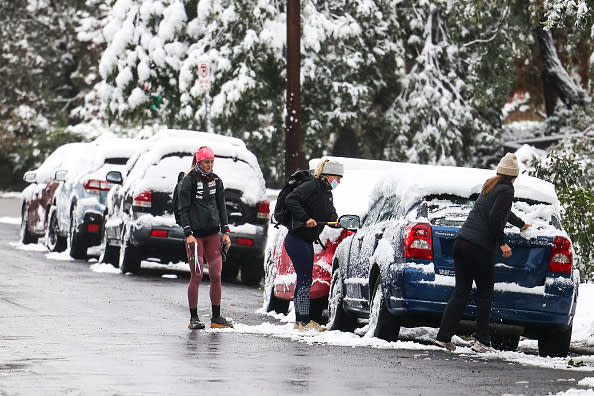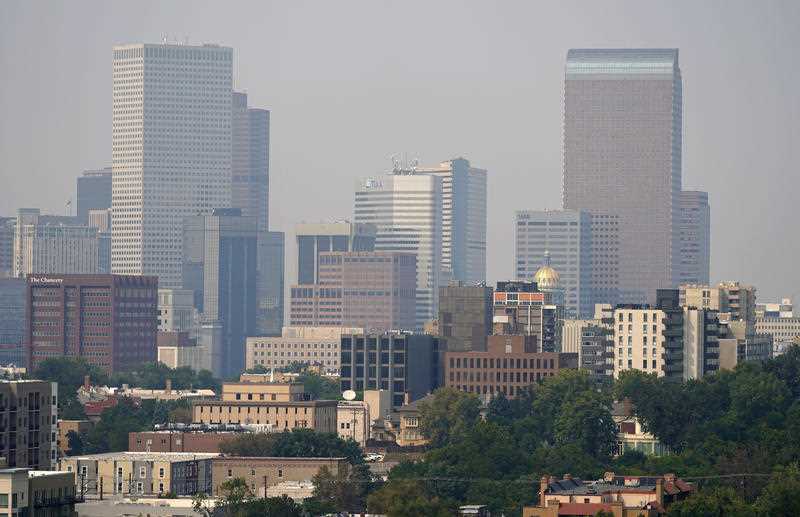From fire to snow: City drops more than 20 degrees in just hours
A state being lashed by wildfires has bizarrely dropped by 26 degrees in temperature over just a few hours.
Snow and cold weather have stalled the growth of a northern Colorado wildfire in the US that exploded in hot, windy weather over the Labor Day weekend, fire managers said Wednesday local time.
The fire near Red Feather Lakes has burned 415 square kilometres, making it one of the largest in Colorado’s history.
According to the Colorado Climate Centre, the temperature fell from a max of 34C on Tuesday in the state’s southeast to just 8 degrees on Wednesday due to a cold front. It got as low as 0.5. With 25mm of snow.
yesterday vs. today pic.twitter.com/0RuOBtQEvG
— Luke Runyon (@LukeRunyon) September 8, 2020
Residents on Twitter shared their shock over the “wild as Hell” change in weather as orange, hazy skies disappeared with streets blanketed in snow.
One man tweeted photos of Horsetooth Reservoir before and after the cold snap.
“It all feels like a weird dream,” he tweeted.

One woman shared photos of her car covered in ash from the wildfires alongside another photo of the ash replaced by snow calling the scenes “unbelievable”.
Another woman referred to it as “the apocalypse”.
“My sister woke up to ash on her driveway this past week, weather in the 90s [Fahrenheit], the orange glow of fire...then a couple days later, snow,” another woman tweeted.

“What will next year look like?”
Another man hoped the snow would remove the ash from the air.
“I'm actually pretty happy about this,” he tweeted.
Assistant state climatologist Becky Bolinger told NPR it was "truly something that I've never seen”.
"It's an incredibly notable event," she told NPR.
Good ol’ Colorado. pic.twitter.com/KqJXm8H1Ev
— Jenna (@Not_Lucio) September 9, 2020
NSW meteorologist Evan Direnzo agreed it was a rare sight.
"Any average person would see this a couple of times in their life,” he said.
Since forecasters began keeping records about 150 years ago, a one-day change in temperature of 12 degrees or more has occurred two dozen times in Denver, the National Weather Service said.
"Enough has accumulated to 'officially' etch September 8, 2020 into history as one of the wildest 24-hour weather periods I have witnessed," Weather Nation meteorologist Ben Reppert said.
What a difference a day makes! pic.twitter.com/Op3Ou72Vz3
— Scott Denning (@airscottdenning) September 8, 2020
However, the snow is unlikely to completely put out all the blazes ravaging the state.
“This is not what we call a season-ending event. We need a series of these to put this thing out,” fire spokesperson Paul Bruggink told the Coloradoan.
with The Associated Press and Reuters
Do you have a story tip? Email: newsroomau@yahoonews.com.
You can also follow us on Facebook, Instagram and Twitter and download the Yahoo News app from the App Store or Google Play.




